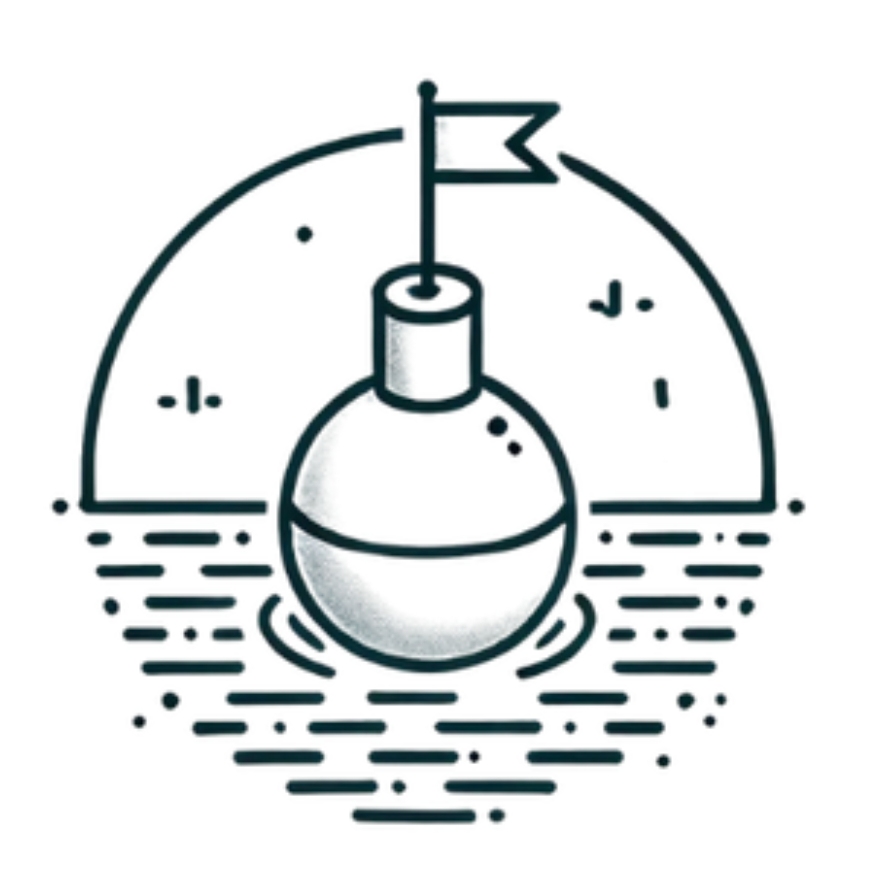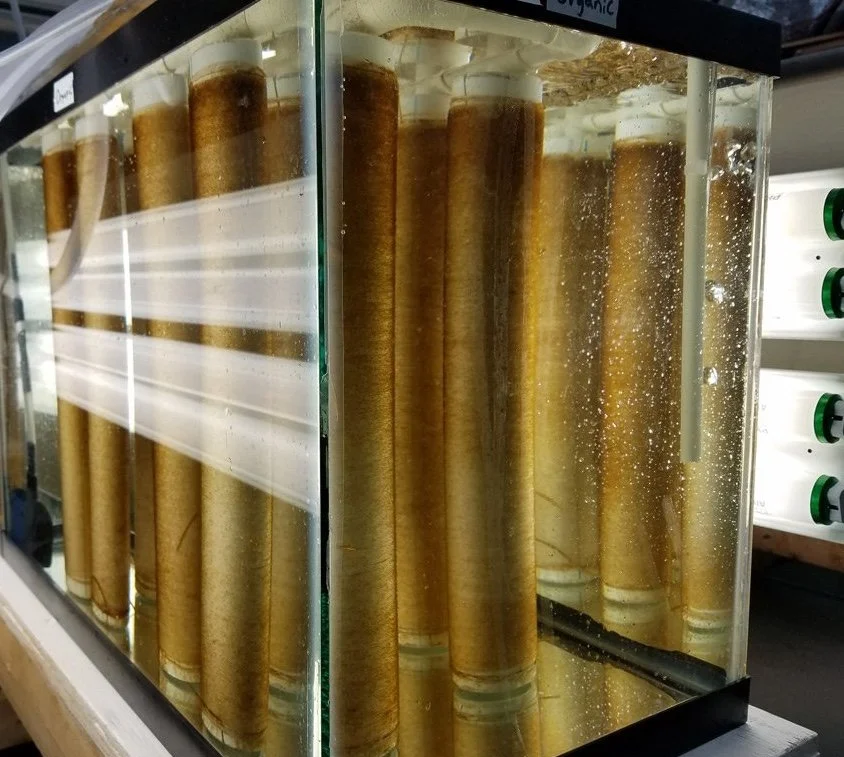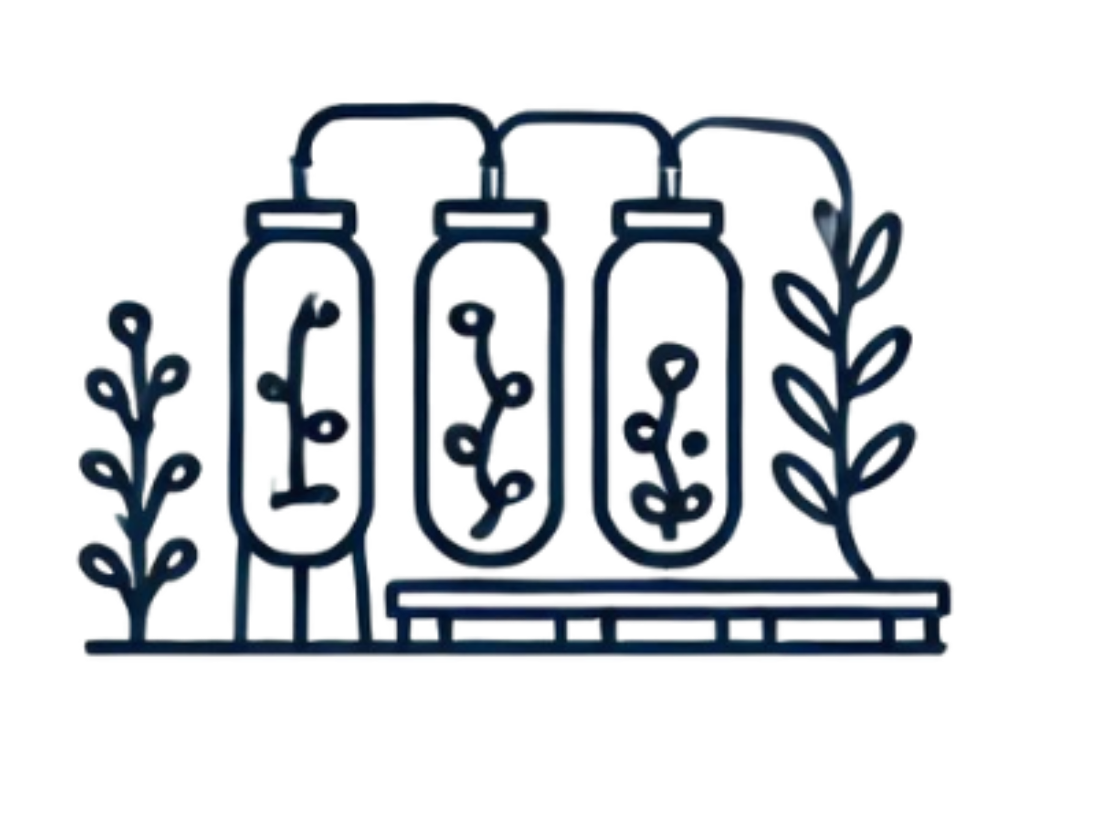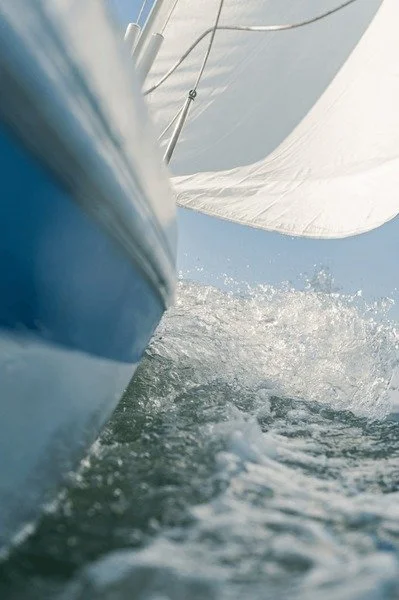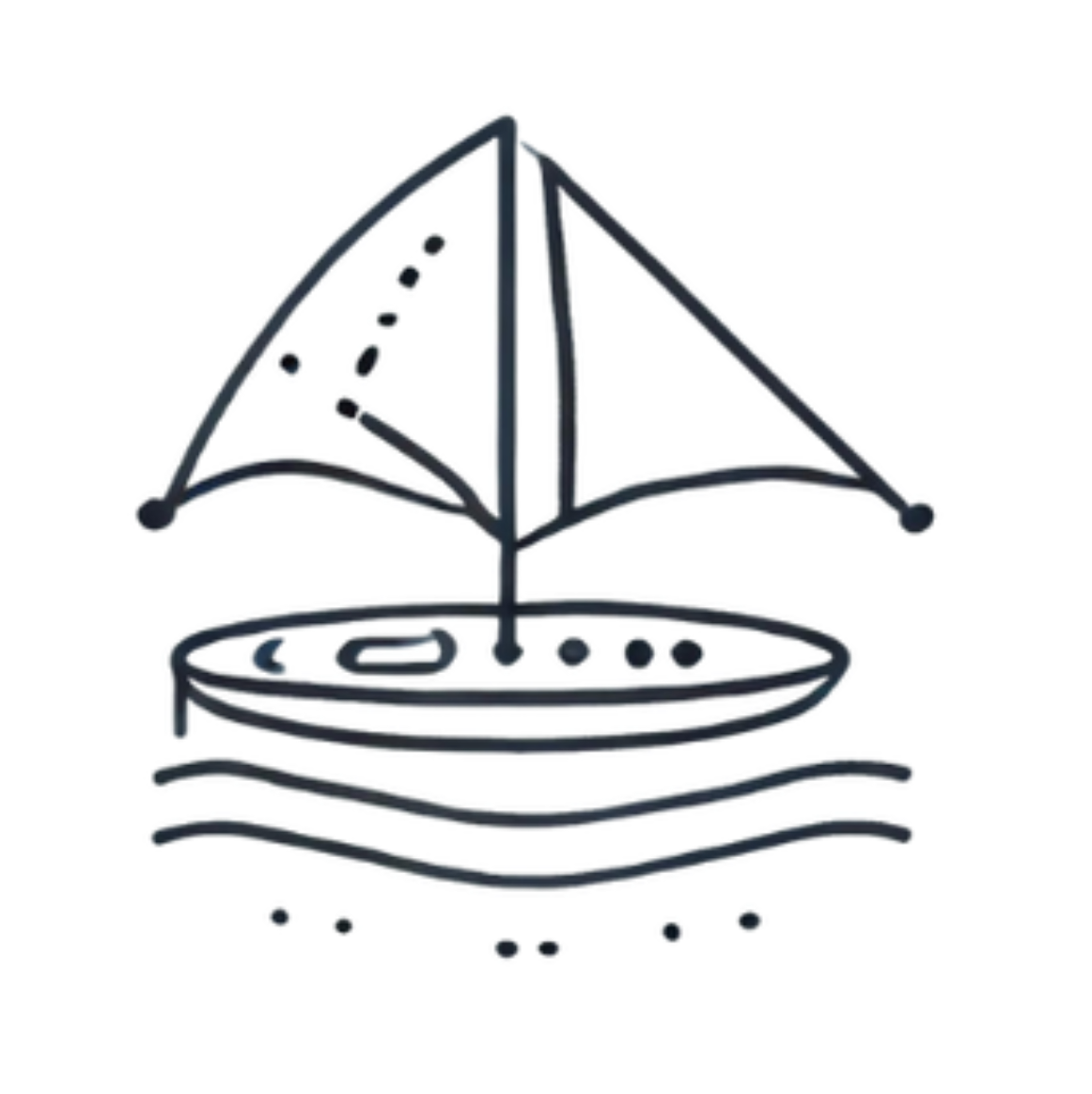Smart Buoys
Our “smart” buoy platform is equipped with tiny sensors, including a novel patent pending biomass sensor. The sensors monitor ocean conditions like water temperature, biomass and wave energy, and correlate them to kelp growth rates; they transmit that data back to land, eliminating the need for gas-powered boats to do in-person monitoring. These buoys are powered by rechargeable batteries and made from biodegradable wood and composites safe for marine life.
Entanglement Resistant Attachment Systems
Still in prototype stage, we are developing entanglement resistant attachment systems that incorporate low tangle rope with breakaway joints and sonar reflectors. This will prevent marine mammal entanglements, and ensure our technology has minimal impact on the ecosystems we are hoping to restore.
Mobile Hatchery
Access to parent kelp seed stock is a major barrier for young farmers. To address this, we are developing portable kelp seed nurseries housed in shipping containers, making seed stock more accessible in remote regions and helping farmers comply with state regulations requiring seed stock be gathered within 50 miles of where it is farmed. Kelp is very hardy, but nurseries are delicate operations; our hatchery automates maintenance tasks to cut down on labor required for a successful crop.
Solar-Powered “Saildrone”
Still in prototype stage, this is a 12-meter, fully autonomous marine vessel powered exclusively by a wind-battery-inertia system. Built from wood and composites, the saildrone can autonomously deploy and retrieve smart buoys far offshore. The retrieved buoys are then delivered back to origin, reseeded, and redeployed. The saildrone is key to unlocking the carbon sequestration potential of our work.

